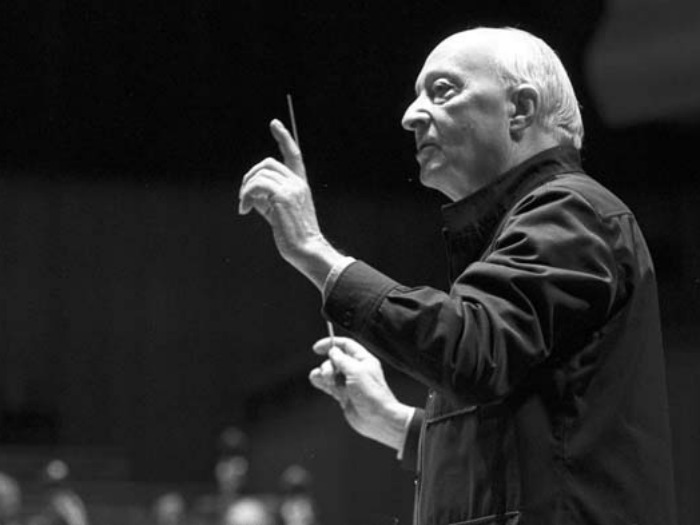For some time I have been a sort of fan of this Polish composer, pianist and conductor. I have the memory of attending at least one concert he conducted in London’s Barbican Concert Hall in the 1970’s. This was part of a short series linked with a mainstream composer whose name I have forgotten! I remember a tall and rather serious man, in contrast to his more genial photos on the web, and music which was thick and demanded close attention but showed glimpses of attractive melody, reflecting his interest in the folk music of his native land. I have three of the twenty or so CD’s of his music recorded by Naxos, typical of that company’s reputation for honouring contemporary composers, otherwise neglected by other companies. I often return to them with great pleasure.
Apparently he developed a composition technique in the late 1950s, which involved building harmonies from small groups of musical intervals. He also used what has come to be known as aleatoric processes, allowing players to arrange fragments of music in a number of different possible sequences in which the rhythmic coordination of parts is subject to an element of chance. He could be mischievous in his choice of notation of his works. His second symphony has only two movements, the first is called ’Hesitant’, the second ‘Direct’ which may be so ultimately but, from almost silent beginnings, it takes time getting there! His concerto for piano and orchestra has four movements and appropriately enough they are numbered l,ll, lll, lV.
He frequently uses the term ‘ad libitum’, which means ‘for your pleasure’.
During World War II, after escaping capture by the invading Germans, he made a living by playing the piano in Warsaw bars. After the war and the Soviet occupation of Poland he resolutely strove to maintain his artistic integrity. In the 1980s, he supported the Solidarity movement, and was implacably opposed to the ideas of Socialist realism. In 1954, the climate of musical oppression drove his friend and fellow composer and performer Andrzej Panufnik to defect to the United Kingdom, but despite a burgeoning international reputation as composer and conductor, Lutoslawski remained faithful to his Polish roots.
If you are unfamiliar with this composer, Naxos (8.553423) could be a good introduction – it includes the attractive Paganini Variations and his 3rd, Symphony, or ‘The Best of Lutoslawski’ a compilation of some of his music (Naxos 8.556692).
B.R.



